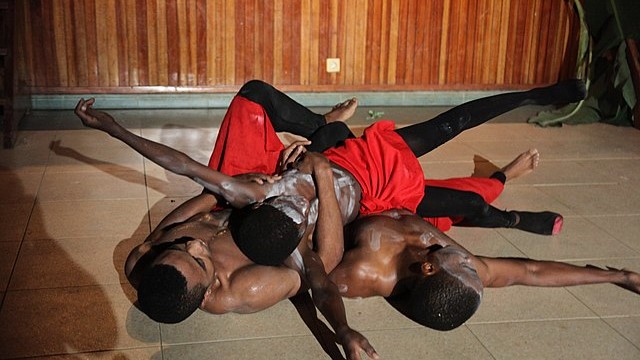Drums echo across village squares, their rhythms joined by the bright tones of the balafon, a wooden percussion instrument central to many local traditions. Dancers step in unison, their movements recalling stories passed down through generations, while vendors prepare plates of mangue and steaming bowls of sopa de pescado. These scenes unfold each year during cultural festivals in Equatorial Guinea, gatherings that weave together music, food, and ritual into celebrations of identity and community.
The country’s festivals are more than displays of heritage. They serve as collective affirmations of unity in a nation defined by its ethnic diversity. Among the most significant is the Fiesta de la Paz, or Festival of Peace, an annual event dedicated to fostering solidarity among the nation’s different communities. Organized around themes of coexistence and shared values, it has become a symbolic space where traditions are preserved while a collective future is envisioned.
Artisans play a prominent role in these festivities. Stalls brim with beadwork, masks, and hand-carved objects, each piece carrying the imprint of cultural memory. Many of these crafts are not simply decorative but are tied to rituals and community practices, connecting the present to ancestral customs. For younger generations, the festivals offer both inspiration and instruction, sustaining artistic knowledge that might otherwise fade in the face of modernization.
Music and dance remain the heartbeat of these gatherings. Performances bring together participants and onlookers in a shared experience that blurs the line between audience and performer. Traditional rhythms mingle with contemporary influences, reflecting the country’s ongoing negotiation between heritage and change. The energy of the performances is often mirrored in the crowd itself, where families, elders, and children gather side by side.
Education, too, is a subtle but vital strand woven into these celebrations. Many festivals include workshops and exhibitions on history, oral traditions, and cultural preservation. These programs extend the significance of the events beyond spectacle, offering context that deepens appreciation and understanding of the nation’s cultural mosaic.
The economic impact is increasingly evident. Festivals draw visitors from abroad and from within the region, supporting hospitality and small-scale businesses while generating opportunities for local artisans and performers. This influx of activity has helped bolster efforts to preserve traditional practices by situating them within a sustainable economic framework.
In Equatorial Guinea, cultural festivals are at once celebratory and instructive, joyous and contemplative. They bring communities together not only to honor traditions but also to affirm shared aspirations for the future. As the country negotiates the balance between development and heritage, these gatherings stand as living reminders of culture’s enduring capacity to unify.
Sources
- UNESCO, Intangible Cultural Heritage: Music and Dance in Central Africa
- BBC Africa, “Equatorial Guinea: Preserving Culture Through Celebration”
- Africa Is a Country, “Festivals and the Politics of Cultural Identity”
- United Nations Development Programme (UNDP), Culture and Sustainable Development in Africa

